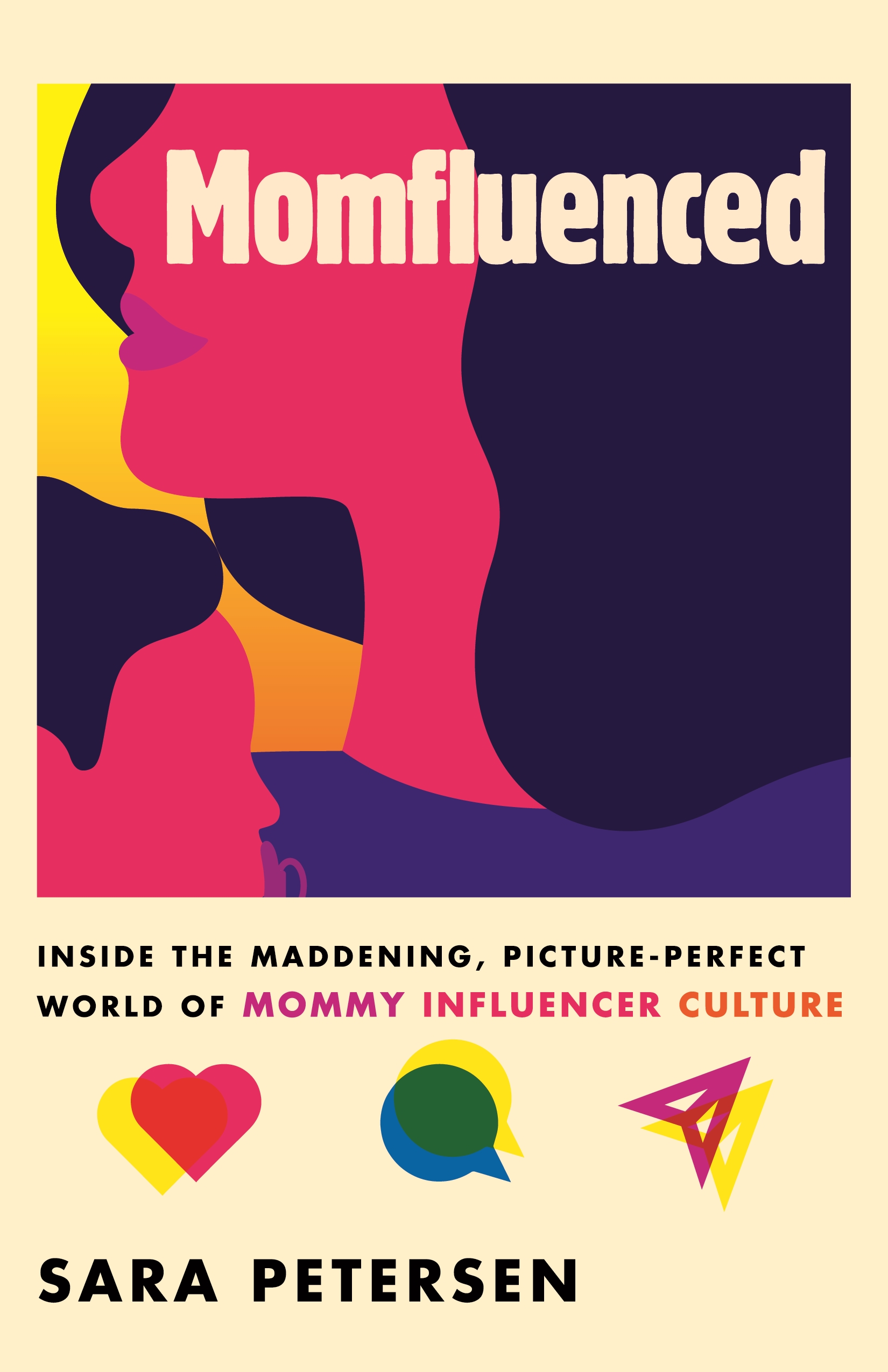In the era of momfluencer culture, author Sara Petersen makes the case for a more nuanced maternal narrative.
In the inaugural issue of her punchy, occasionally polarizing weekly newsletter, In Pursuit of Clean Countertops, Sara Petersen writes: “Think of it as joining a fun, smart, juicy text thread that’s motivated by collective rage about the pervasive narrative of the “ideal motherhood” — on social media and off.”
 Petersen began writing about her obsession with momfluencer culture in 2021, in desperate need of an outlet to express what she describes as an existential crisis of identity following the onset of motherhood. Her musings, intended not as a critique of any one person but of the narratives we welcome and praise about motherhood (picture Montessori-approved wooden toys in a spotless living room or a baking time-lapse set to Harry Styles), struck a nerve with mothers across the internet. Petersen wasn’t alone in feeling “simultaneously inspired, outraged, desirous, envious, and confused about momfluencer culture.”
Petersen began writing about her obsession with momfluencer culture in 2021, in desperate need of an outlet to express what she describes as an existential crisis of identity following the onset of motherhood. Her musings, intended not as a critique of any one person but of the narratives we welcome and praise about motherhood (picture Montessori-approved wooden toys in a spotless living room or a baking time-lapse set to Harry Styles), struck a nerve with mothers across the internet. Petersen wasn’t alone in feeling “simultaneously inspired, outraged, desirous, envious, and confused about momfluencer culture.”
Using the aesthetic comparison trap as an entry point, Petersen’s newsletter delves into how race, class, and politics influence our concept of the “ideal mother” and encourages women to instead focus on why our culture idealizes an aspirational version of motherhood while failing to provide systemic support like subsidized child care and paid family leave.
 “So many of us are searching for better experiences of motherhood when we consume momfluencers’ minimalist feeds,” Petersen writes in her new book Momfluenced: Inside the Maddening, Picture-Perfect World of Mommy Influencer Culture. “But aesthetics can only go so far toward achieving equitable, joyful lives for mothers and caregivers. A clean countertop bathed in morning light is pretty, but it can’t guarantee three months of paid leave; it can’t provide universal preschool; it can’t keep our children safe at school. Only systems can do that.”
“So many of us are searching for better experiences of motherhood when we consume momfluencers’ minimalist feeds,” Petersen writes in her new book Momfluenced: Inside the Maddening, Picture-Perfect World of Mommy Influencer Culture. “But aesthetics can only go so far toward achieving equitable, joyful lives for mothers and caregivers. A clean countertop bathed in morning light is pretty, but it can’t guarantee three months of paid leave; it can’t provide universal preschool; it can’t keep our children safe at school. Only systems can do that.”
To learn more, we talked with Petersen about the connection between “good” motherhood and marketing, the performance of motherhood online, and how to consume momfluencer content in a more mindful way.
How has momfluencer culture evolved since you started In Pursuit of Clean Countertops?
When I first started researching momfluencer culture, the primary focus was on aspiration. Beautiful moms in beautiful homes sharing their beautiful lives. Since the pandemic, a real hunger has emerged for more nuanced approaches to maternal narratives.
Since launching In Pursuit, I’ve become focused on how motherhood is sold to consumers not only by momfluencers, but by the algorithm (which is, of course, a reflection of the culture). On any given day, I will get an ad explicitly connecting my “good” motherhood with my consumer habits. Interrogating our media, and the way we’re marketed to, can illuminate which maternal values are prioritized as “the norm.” This “busy mama” for example, does not need “glowing skin this Mother’s Day” to feel better about my life. I (we all!) need systemic support. Not Vitamin C serum.

Read more: How to Escape The Algorithm
In an ideal world, what would “mainstream” momfluencer culture look like?
In an ideal world, there would be no ideals at all. In an ideal world, I wouldn’t be able to describe mainstream momfluencer culture because there would be no homogenous model to point to — every type of mother might see themselves represented on social media.
What value do you see in creating our own narratives of mothering, particularly those that center mothers’ individuality?
Whether we’re following someone we perceive to be “succeeding” in ways we perceive ourselves to be “failing,” or whether we’re following someone in order to feel stronger about our own choices, we are losing sight of ourselves in the process — which can definitely be damaging to mental health. I think it’s human to understand one’s own identity through comparison, but mothers are presented with so many ways to “get motherhood right” that it can be hard to know where one’s own maternal identity and values start and where the endless scroll ends.
Maybe the challenge is not “figuring out” my fraught relationship with momfluencers but accepting that I might never fully extract myself from the system we’ve all grown up in, a system that tangles motherhood and performance and beauty and consumption into a mess of knots impossible to untie.
Read more: How Social Media Harms Our Brains
Do you see a way to approach mainstream momfluencer content in a healthier, more mindful way?
Yes! Social media apps are explicitly designed to be addictive, so it’s unfortunately on us to manage our own social media usage. Never underestimate the power of the unfollow.
Constant check-ins are also so useful. Asking ourselves, “Am I dealing with a cranky toddler while drenched in sweat in a strawberry patch because I innately enjoy picking fruit with my kids, or am I out here trying to get my kid to smile for a photo because I think this activity is somehow part and parcel of “good” motherhood?”
I’m also a huge proponent of social media fasts. It’s the only way I feel clear about what’s hurting me and what’s not, in terms of my consumption practices.
What do you hope readers take away from Momfluenced?
I hope readers will feel freer to create their own maternal narratives. Motherhood is not (and never has been) one-size-fits-all.

Read more: Is There a Healthy Way to Use Social Media?
This conversation has been lightly edited and condensed for clarity. Have feedback on our story? Email [email protected] to let us know what you think!

Shop Pillows
The Essential Organic Pillow Collection
Gentle, breathable, non-toxic support.







